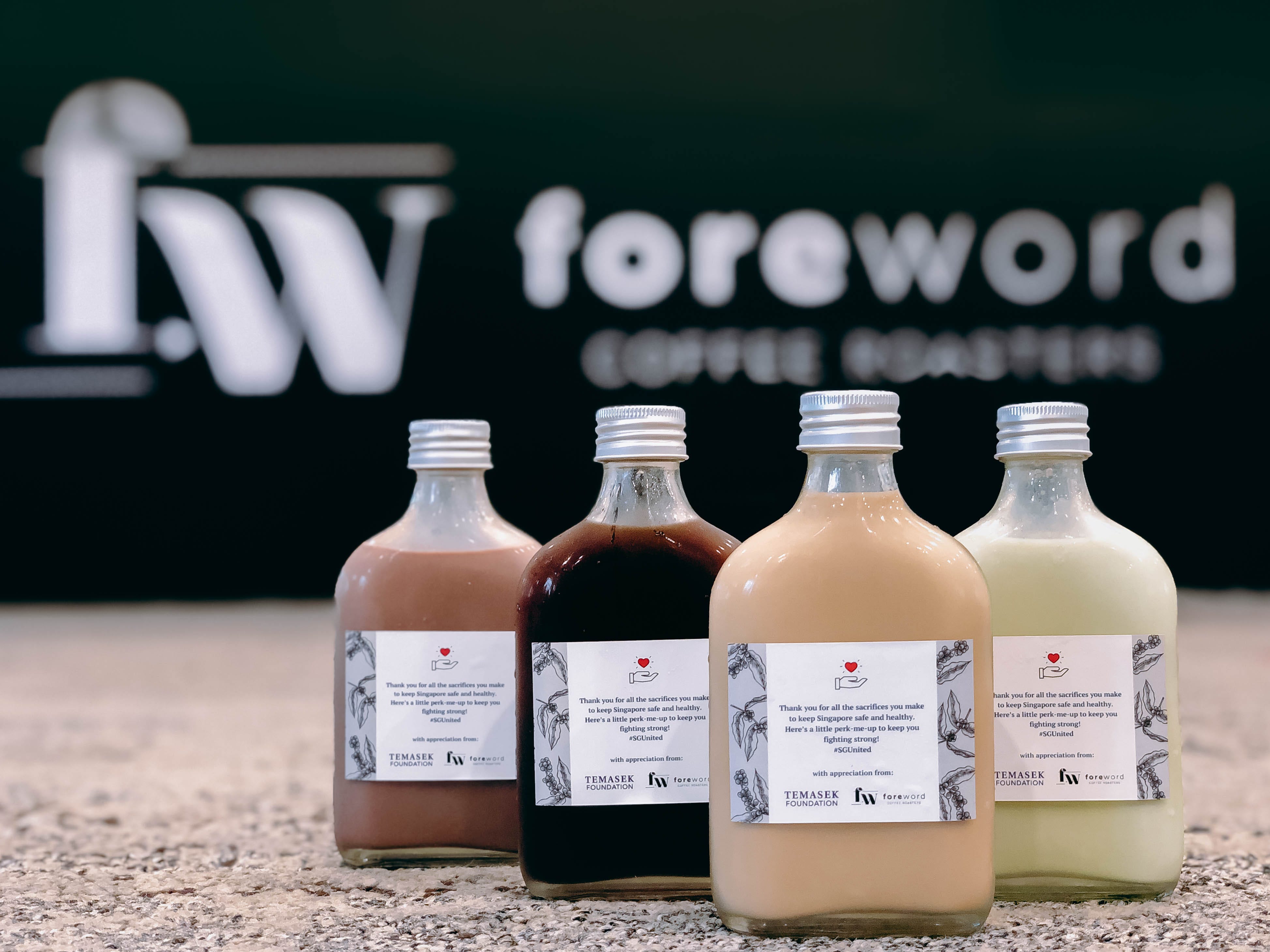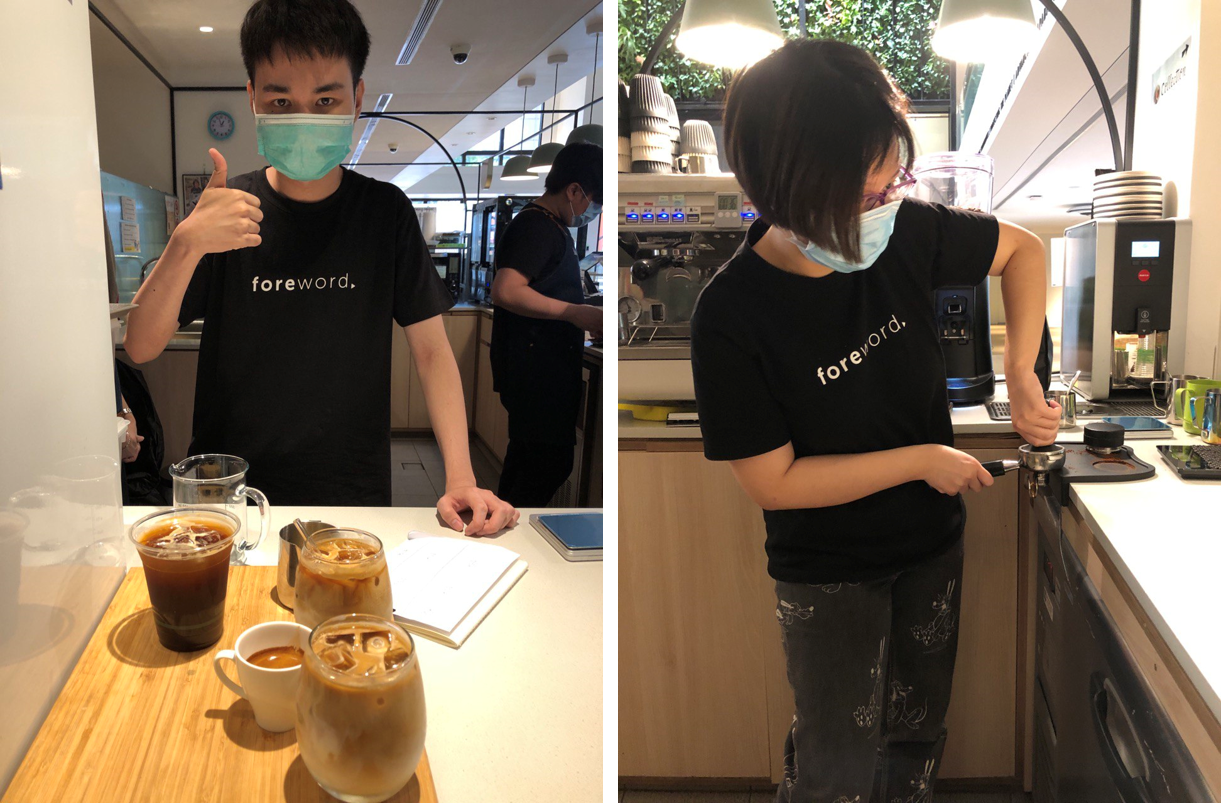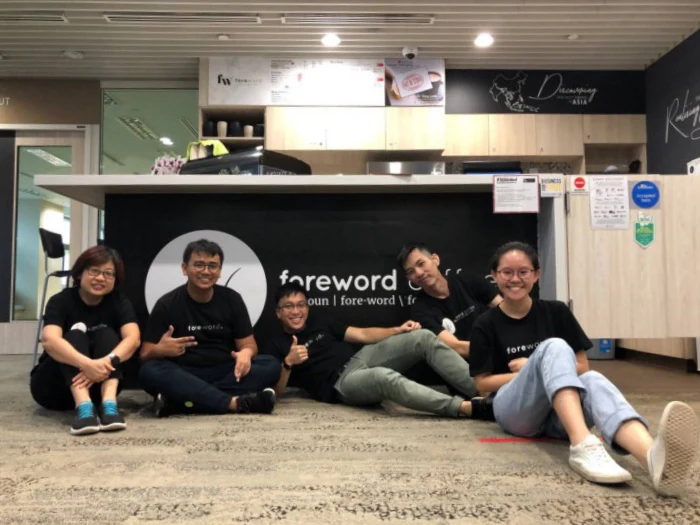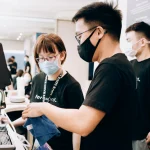2020 was an unprecedented year for everyone. At the business level, we were glad that we survived through this financially and explored new ways of reaching out to customers. At the interpersonal level, we were cognizant of how Covid-19 has affected the lives of our employees and their families, and the need to continue engaging them and providing them with the certainty they need in an uncertain era.
The only way we could have survived through this was with the financial support of our customers and partners who continued to purchase from us, providing us with the much needed cashflow for the company.
The only way our team could have survived this was with their patience and understanding — not just from the employees but also from their families — that despite Circuit Breaker, having fewer shifts and duties, and not knowing when things will go back to normal again, they trust the company to do what’s needed for us to tide through this together.
The Importance of Focusing on What Matters.
As we move into 2021, we have identified the things which we will be doing more of, and the things we will be doing less of. One of the important things for our team is the importance of managing energy. We manage our energy by doing things that bring us value aligned with the company’s mission and goals. We manage our energy by reducing initiatives that distract us from achieving our goals. We manage energy because it is important for our overall well-being and mental wellness.
During Circuit Breaker in April and May 2020, Nadi was making daily delivery rounds island-wide in Singapore. He even made a delivery to Sentosa Cove once! Everyone was staying home and they needed coffee. To save the commission costs charged by food delivery apps, we took it on our own.
On average, we delivered 20–25 orders a day for 2 months straight, until the government announced the end of Circuit Breaker and the start of Phase 1.
On top of this, Temasek Foundation also supported us in the making and distribution of 4000 bottled coffees to 20 Polyclinics in Singapore to thank the healthcare workers for their work at the frontlines. Having this project provided us with the boost in cashflow when we only have 1 cafe operating at less than 50% of the usual revenue and still having a team of 8 full-time staff to provide for. It mobilized all 8 full-timers for us to complete this 4000 bottles project, which spanned over 10 days
It mobilized all 8 full-timers for us to complete this 4000 bottles project, which spanned over 10 days
This island-wide delivery for our products discontinued on 29 December when we decided that it is taking up too much time from Nadi and there’s other business for him to take care of. Sales are not sufficient enough for us to hire a driver to help us with deliveries and delivery costs are too high for us to bear when it comes to ad-hoc deliveries. This is an example of weighing the pros and cons when it comes to making a business decision for a small business like us.
With limitations in resources, we need to focus on what matters.
Cultivate Trust on a Daily Basis.
The second important thing for our team is to continue building the Circle of Safety. This concept was explored deeply in Simon Sinek’s book, Leaders Eat Last.
“The more we trust that the people to the left of us and the people to the right of us have our backs, the better equipped we are to face the constant threats from the outside together. Only when we feel we are in a Circle of Safety will we pull together as a unified team, better able to survive and thrive regardless of the conditions outside.” — Simon Sinek, in Leaders Eat Last.
Covid-19 is a test of our team’s trust in each other. It was a test on the founders to still lead the company based on the values and culture we have created. We have spoken to mentors and they reminded us that it is during tough times that we need to fall back on our values even more to help bring the company back up.
While our revenue took a hit, we had enough cashflow to still pay our full-time employees’ salaries in full. Thanks to the salary support given by the Singapore government, even with the mandatory closures on the cafes, drastic fall in revenue, and our cafe team working at just 50% of the time during the Circuit Breaker period, we made the decision to continue paying the salaries as we still have our bills to pay and families to support.

We communicate openly and frequently with all employees on the situation whenever there were updates from the government. Employees needed the certainty that they still have their jobs even though they are not working at the moment. We also allowed part-time employees to take up a second job outside, but due to the challenges they face as persons with disabilities, only 2 out of 14 of them got started working as food deliverers. We helped them with any supporting documents they needed to apply for the government grants.
As the economy reopens, we scheduled our part-timers back to work. We were also awarded with SG Enable’s training grant which we used to conduct cafe refresher training for our part-time employees. This training grant also provided the trainees with allowances when they complete the 40 hours course. The training framework we have developed will continue to be used within the company as part of our quality check at the cafes.
In our employee engagement survey held in June, we seek their sentiments on how Covid-19 has impacted them and how else they wished for the company to support them. All employees felt that we have communicated sufficiently and they have gotten the necessary support from the company. The employees and their parents were understanding to allow the company to take the necessary cost cutting measures we need — in this case, we stopped providing work for the part-timers as we do not require that many people at this point in time.

The Circle of Safety is built through time and lots of communication. Employees need to feel that they are being cared for and that their needs within the organization are being met. For the year going forward, we will continue to cultivate the trust within the organization.
Invest in our People First.
Foreword would not be where we are without the people in our company. Our people are both beneficiaries (I don’t like using this word, but it helps convey our social mission) and champions of our company’s missions.
Since we developed the training framework as part of the SG Enable’s training grant, we will continue to carry out skills check-in with all employees on a regular basis. This helps us maintain and ensure quality in our products and services across all outlets.
We make a promise that we will provide the first opportunities for promotion to our existing team of employees as long as they have the right attitude, abilities, and the availability to make the commitment. All of our employees have been with us for at least a year. Due to the economic impact of Covid-19, many of our employees are currently underemployed. Some of our employees are ready to make the move to take on more roles and duties in the company. It is our duty to first provide for those who have been committed, before we make new hires.
It’s not sufficient to just provide the opportunities. It is also important that we prepare our team for the opportunities when the time comes. Mentorships and trainings are therefore important. While we do not have formal leadership trainings within the company, we do regular check-in with employees we have identified to groom them into leaders.
Task management is one thing, people management is many levels up. Through practising mentorship within the company, we are also gearing up for succession planning. At this point in time, our company is still small and looking to grow and maintain our progress sustainably. Nadi and I know we want to build this company to last beyond any one’s time in the company and therefore it is important for us and our leaders to adopt this mindset to share what they know and to grow the next batch of leaders in our team.
With these in mind, we set off to a slow start to the new year. Business isn’t booming for us, but our calculated optimism tells us this is going to be a better year 🙂
This blog post is written by Wei Jie, co-founder and director of Foreword. He thinks that one of the strengths of the team at Foreword is the quiet optimism that they share. Wei Jie places internal team resilience above all other factors when it comes to growing the business sustainably. “Do we need to worry about competition with other businesses? As long as we have a strong team, we will be able to take care of any external influences. We should always focus on building a strong team first.”





